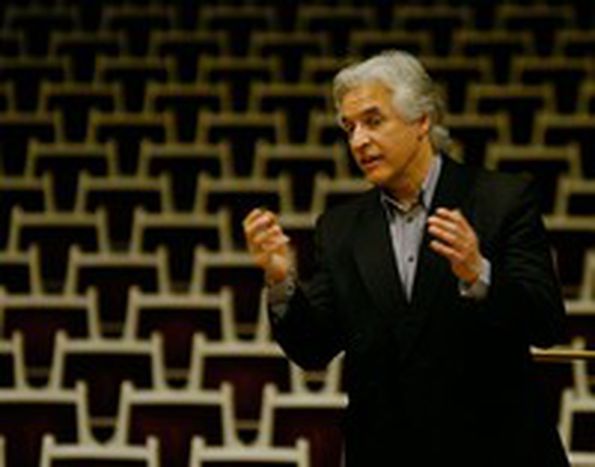
Playing it by ear in Brussels
Published on
Translation by:
 sarah meleleu
sarah meleleu
The prestigious Queen Elisabeth Music Competition also acts as an international assembly, uniting the best piano soloists in the European capital in May and June 2007
It was the meeting of Queen Elisabeth of Belgium and Liege-born violinist, composer and conductor Eugène Ysayë at the beginning of the century that gave birth to this international competition.
However renowned the event is for its musical demands and the talent of its candidates, the cultural figure of the queen, who died in 1965, remains ever central. 'She wanted to facilitate contacts between countries. Through music, she allows a greater understanding between human beings to be reached,' says Michel-Etienne Van Neste, secretary general of the competition. 'The 'Red Queen' as she eventually became known as took certain stances which irritated the Belgian (and American) governments, especially during the Cold War. These were highlighted for example in the foreign visits she paid to Nikita Khrushchev, Stalin's post-Soviet successor in the USSR in 1958, or Mao Zedong in popular China.'
Indeed, in the competitition itself, Americans and Soviets fought it out for first place between 1955 and 1976, leaving no room for any European winners until the eighties.
From all over the world
2007's competition is devoted to the piano. Ninety-four candidates are competing, aged between 17 and 27. Only twenty-four can make it through to the semi-finals, with half being selected for the finals. On the evening of 2 June, six winners will walk away with the prizes. These pianists come from many countries including Russia, Korea, China, Belgium, Ukraine, Italy, USA, France, Israel and Serbia.
The level of training required is extremely high. The main test will be to be 'capable of assuming an international career as a soloist after the competition,' according to Nicolas Dernoncourt, artistic coordinator.
Amongst the twenty-four semi-finalists this year, ten candidates are from Europe, amongst whom five themselves are Belgian. Other European nationalities represented are Italy, France, Bulgaria and Latvia. The Belgian Philippe Raskin, 25, studied at the Queen Elizabeth Musical Chapel in Brussels and at the Superior School of Reina Sofia Music School in Madrid.
Some, like Korean Hyun-Jung Lim, 20, consider that 'making music as a competition is anti-musical.' The Queen Elisabeth Competition does not truly represent dedication for the candidates, but rather a door opening. 'It is becoming difficult to make a career even after winning such a competition, as competition today has become too great,' confides Raskin. 'Of course we have to aim at technical perfection, but it would be a shame if technicality took over musicality.'
New language
Yesterday it represented an escape for confined musicians behind the Iron Curtain - and today, the Queen Elisabeth Competition stands out as a true point of attraction of musicians in the European capital. 'Many Europeans pass through, Brussels, allowing a unique cultural mix,' Dernoncourt explains.
The competition plays a unique role as music distributor to a wide audience. It is the only international competition in which it is possible to hear a new contemporary piece played twelve times by twelve finalists. 'Listening to the piece six evenings in a row allows the public to really appreciate it,' believes Yossif Ivanov. 'In every other concert, if you listen to a new composition, it just goes in one ear and out the other.' Daniel Blumenthal for his part 'hopes that some people who come to music by the way of this competition become true music lovers.'
Ahead of its time?
The contemporary piece set for the finals has always been the focus of critics. Performer Jean-Claude Vanden Eynden believes that 'there has always been a lack of understanding between the composer and the public, because very often the composers were ahead of their time. At the time, people didn’t understand anything about Brahms or Ravel.'
This tendency has hardly changed today. 'In Bach’s time, everyone went to church on Sundays to listen to his latest masterpiece,' remarks Jan Michiels. 'Nowadays we go to concerts to listen to Bach and not György Ligeti (Hungarian/ Austrian), Helmut Lachenmann (German) or György Kurtag (Hungarian).' Ivanov agrees: 'It’s a bit of a shame that it's always the classic 'hits' that work the best with the general public,' regrets Ivanov, 'because there are so many other pieces that really deserve to be known.'
At the Queen Elisabeth Competition, however, the pieces chosen by the candidates show a change in mentality. 'Besides, the competition wants to promote this overture,' Van Neste concludes.
Translated from Bruxelles : le piano à l'honneur


